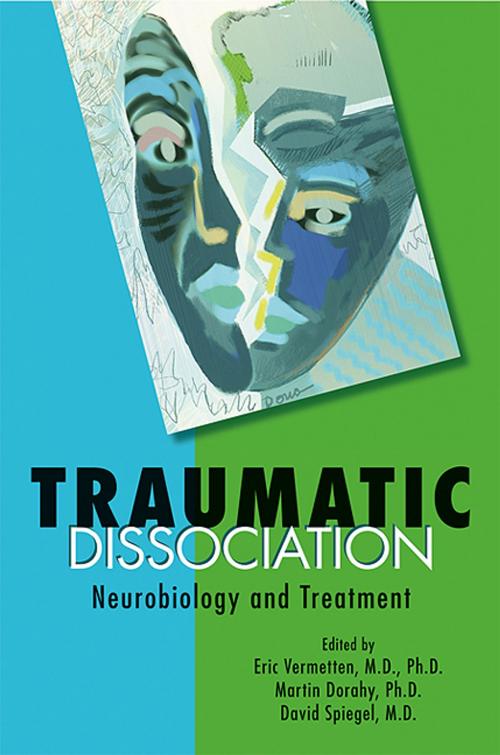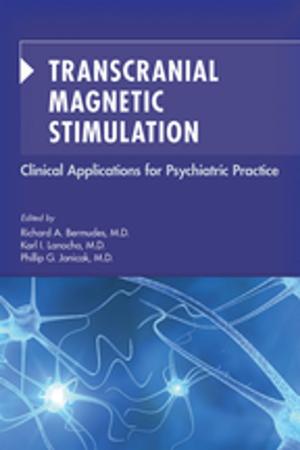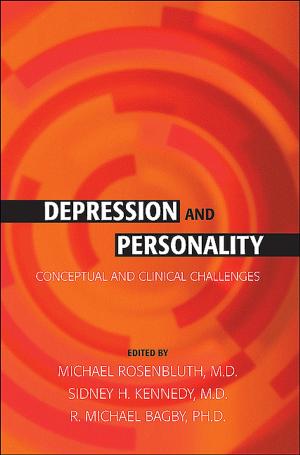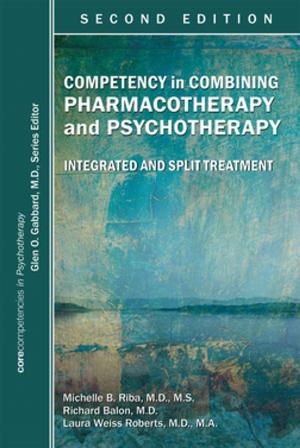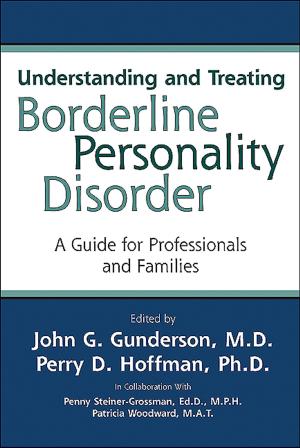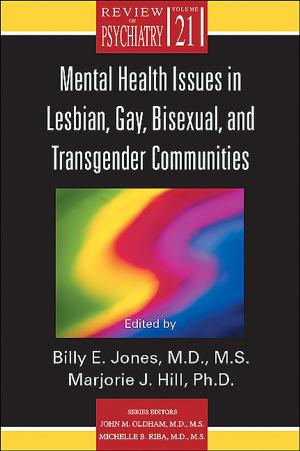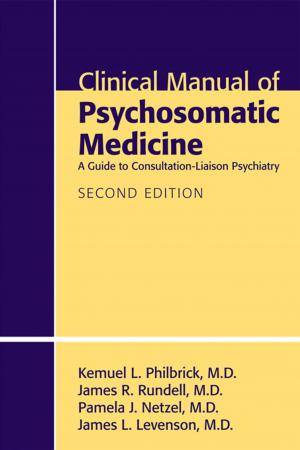Traumatic Dissociation
Neurobiology and Treatment
Nonfiction, Health & Well Being, Medical, Specialties, Psychiatry| Author: | ISBN: | 9781585627141 | |
| Publisher: | American Psychiatric Publishing | Publication: | May 3, 2007 |
| Imprint: | American Psychiatric Association Publishing | Language: | English |
| Author: | |
| ISBN: | 9781585627141 |
| Publisher: | American Psychiatric Publishing |
| Publication: | May 3, 2007 |
| Imprint: | American Psychiatric Association Publishing |
| Language: | English |
Traumatic Dissociation: Neurobiology and Treatment offers an advanced introduction to this symptom, process, and pattern of personality organization seen in several trauma-related disorders, including acute stress disorder, posttraumatic stress disorder (PTSD), and the dissociative disorders. Our understanding of traumatic dissociation has recently been advanced by neuroimaging technology, empirically-based investigation, and an acknowledgment of its importance in psychopathology. The authors of this volume tie these findings together, tracking the condition from its earliest historical conceptualization to its most recent neurobiological understanding to provide even greater insight into traumatic dissociation and its treatment.
Bringing together for the first time theoretical, cognitive, and neurobiological perspectives on traumatic dissociation, this volume is designed to provide both empirical and therapeutic insights by drawing on the work of many of the main contributors to the field. Opening chapters examine historical, conceptual, and theoretical issues and how other fields, such as cognitive psychology, have been applied to the study of traumatic dissociation. The following section focuses specifically on how neurobiological investigations have deepened our understanding of dissociation and concluding chapters explore issues pertinent to the assessment and treatment of traumatic dissociation. The interacting effects of traumatic experience, developmental history, neurobiological function, and specific vulnerabilities to dissociative processes that underlie the occurrence of traumatic dissociation are among some of the key issues covered. The book's significant contributions include A review of cognitive experimental findings on attention and memory functioning in dissociative identity disorder An appreciation of how the literature on hypnosis provides a greater understanding of perceptual processing and traumatic stress Ascertaining symptoms of dissociation in a military setting and in other situations of extreme stress An outline of key issues for planning assessment of traumatic dissociation, including a critique of its primary empirically supported standardized measures An examination of the association between child abuse or neglect and the development of eating disorders, suggesting ways to therapeutically deal with negative body experience to reduce events that trigger dissociation A description of neuroendocrine alterations associated with stress, pointing toward a better understanding of the developmental effects of deprivation and trauma on PTSD and dissociation A review of the relation of attachment and dissociation A discussion of new research findings in the neuroimaging of dissociation and a link between cerebellar functioning and specific peritraumatic experiences
Useful as a clinical reference or as ancillary textbook, Traumatic Dissociation reorganizes phenomenological observations that have been overlooked, misunderstood, or neglected in traditional training. The research and clinical experience described here will provide the basis for further clinical and theoretical formulations of traumatic dissociation and will advance empirical examination and treatment of the phenomenon.
Traumatic Dissociation: Neurobiology and Treatment offers an advanced introduction to this symptom, process, and pattern of personality organization seen in several trauma-related disorders, including acute stress disorder, posttraumatic stress disorder (PTSD), and the dissociative disorders. Our understanding of traumatic dissociation has recently been advanced by neuroimaging technology, empirically-based investigation, and an acknowledgment of its importance in psychopathology. The authors of this volume tie these findings together, tracking the condition from its earliest historical conceptualization to its most recent neurobiological understanding to provide even greater insight into traumatic dissociation and its treatment.
Bringing together for the first time theoretical, cognitive, and neurobiological perspectives on traumatic dissociation, this volume is designed to provide both empirical and therapeutic insights by drawing on the work of many of the main contributors to the field. Opening chapters examine historical, conceptual, and theoretical issues and how other fields, such as cognitive psychology, have been applied to the study of traumatic dissociation. The following section focuses specifically on how neurobiological investigations have deepened our understanding of dissociation and concluding chapters explore issues pertinent to the assessment and treatment of traumatic dissociation. The interacting effects of traumatic experience, developmental history, neurobiological function, and specific vulnerabilities to dissociative processes that underlie the occurrence of traumatic dissociation are among some of the key issues covered. The book's significant contributions include A review of cognitive experimental findings on attention and memory functioning in dissociative identity disorder An appreciation of how the literature on hypnosis provides a greater understanding of perceptual processing and traumatic stress Ascertaining symptoms of dissociation in a military setting and in other situations of extreme stress An outline of key issues for planning assessment of traumatic dissociation, including a critique of its primary empirically supported standardized measures An examination of the association between child abuse or neglect and the development of eating disorders, suggesting ways to therapeutically deal with negative body experience to reduce events that trigger dissociation A description of neuroendocrine alterations associated with stress, pointing toward a better understanding of the developmental effects of deprivation and trauma on PTSD and dissociation A review of the relation of attachment and dissociation A discussion of new research findings in the neuroimaging of dissociation and a link between cerebellar functioning and specific peritraumatic experiences
Useful as a clinical reference or as ancillary textbook, Traumatic Dissociation reorganizes phenomenological observations that have been overlooked, misunderstood, or neglected in traditional training. The research and clinical experience described here will provide the basis for further clinical and theoretical formulations of traumatic dissociation and will advance empirical examination and treatment of the phenomenon.
